What ingredients do you associate with Italian cooking?
If I ask you this question, I’m guessing a list starts forming in your mind. And I’d lay money on olive oil being close to the top. Italians have been cooking with and consuming olive oil since…well, since the dawn of time. Italian food just wouldn’t be Italian without olive oil, right?
That’s what I thought.
And who’d blame me? I grew up following Italian recipes from contemporary cooks; all used olive oil. I’ve known about the ‘wonder’ of The Mediterranean Diet and its use of this monounsaturated fat since my early health research. Here in Italy the trees, fruit and oil are all around me.
But it turns out I was wrong.
If that’s how you’ve viewed Italy’s relationship with olive oil, you’ve been misled too.
Here’s the truth:
In the decades leading up to the 1950s virtually all Italians cooked almost exclusively with lard.
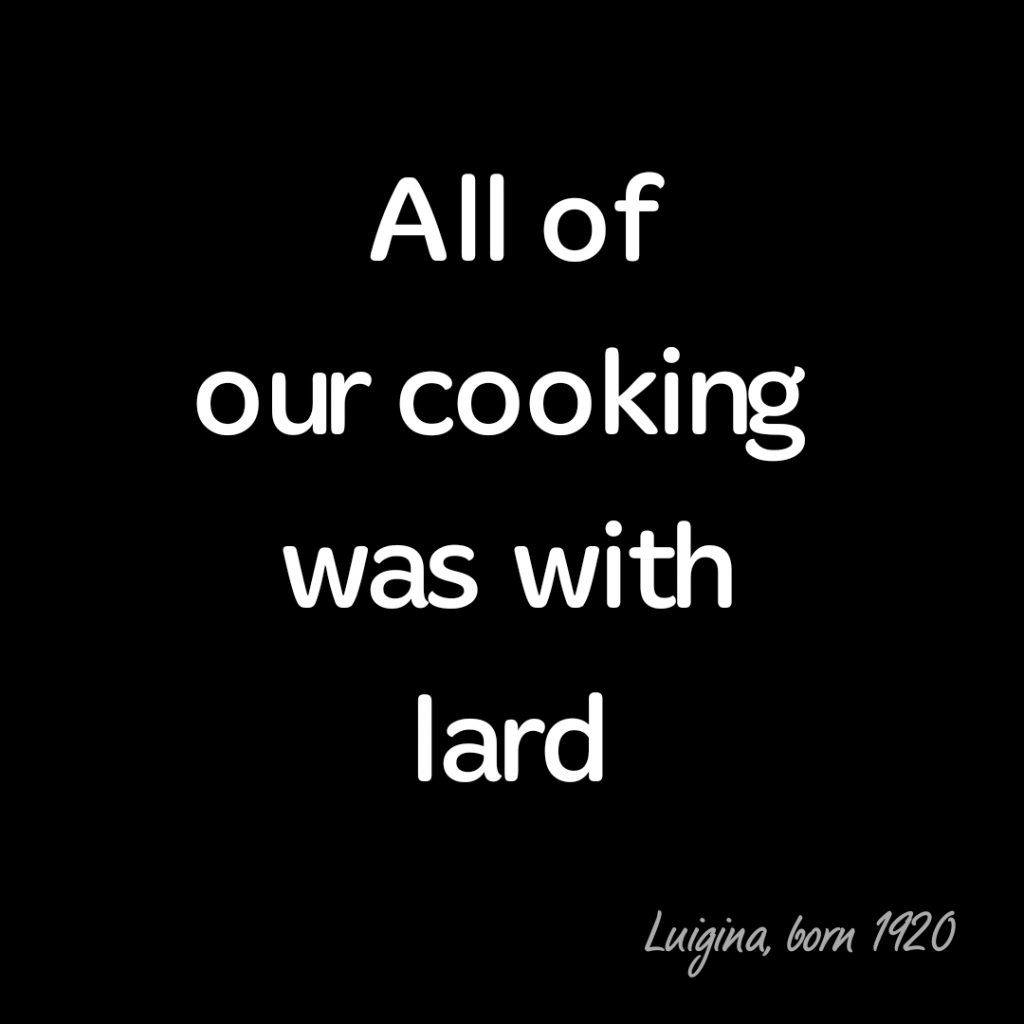
How did the lie that olive oil was universal become ‘truth’?
Turns out the food traditions we internalise as true, that saturate our modern world, are malleable…even inventable.
Our tastes, choices and ‘knowledge’ are moulded, mostly unbeknownst to us, by the market. The promise of financial compensation and the possibilities inherent in global trade and marketing give groups of individuals the incentive and power to literally change our perception of what is true. Once changed, once ‘in vogue’, these misinformations are perpetuated through mass media, becoming part of our cultural heritage.
In the case of olive oil and lard, the post-war movement of populations from country to city, the growing search for a culprit for heart disease and the possibility for individuals to profit by the creation and selling of olive oil came together to propel olive oil into a position of ‘health champion’, with Italians being told to switch to it. From there, the export and trade possibilities rode roughshod over any inconvenient truth that the Italian fat of choice in the decades prior had been lard.
It’s only through talking to real people and learning what they actually did that truth can be uncovered. At a local level we have the possibility to do this with our own families (as long as we learn their traditions before they’ve been changed by our rapidly evolving world). But when these traditions have been carried out in a part of the world far from us, the truth is not so easily accessible.
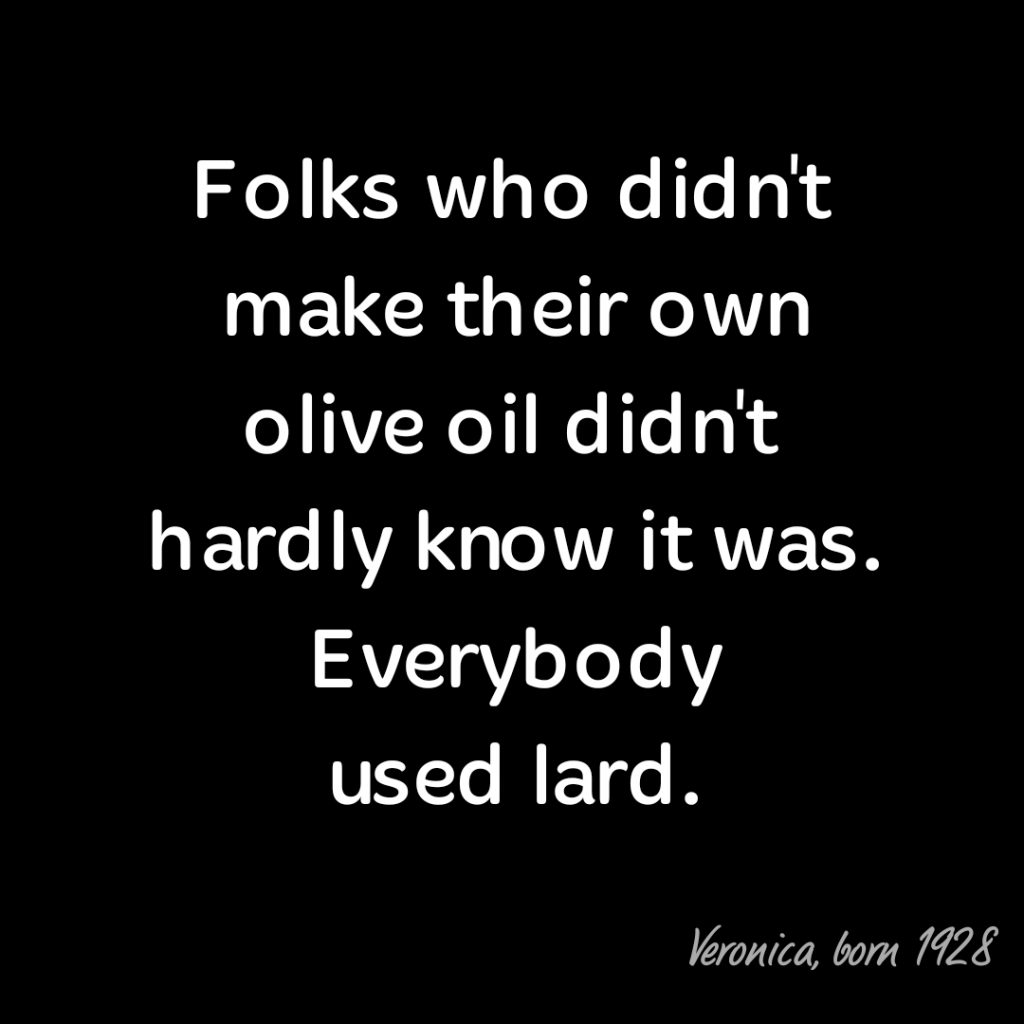
Thankfully sometimes a person comes along who takes the time to interview and document traditions first hand. That’s what Karima Moyer-Nocchi’s book Chewing The Fat is all about. Karima is an American living in Italy – her book is a collection of interviews of 18 women in their 90s from incredibly varied walks of life who grew up in Italy before and during the world wars.
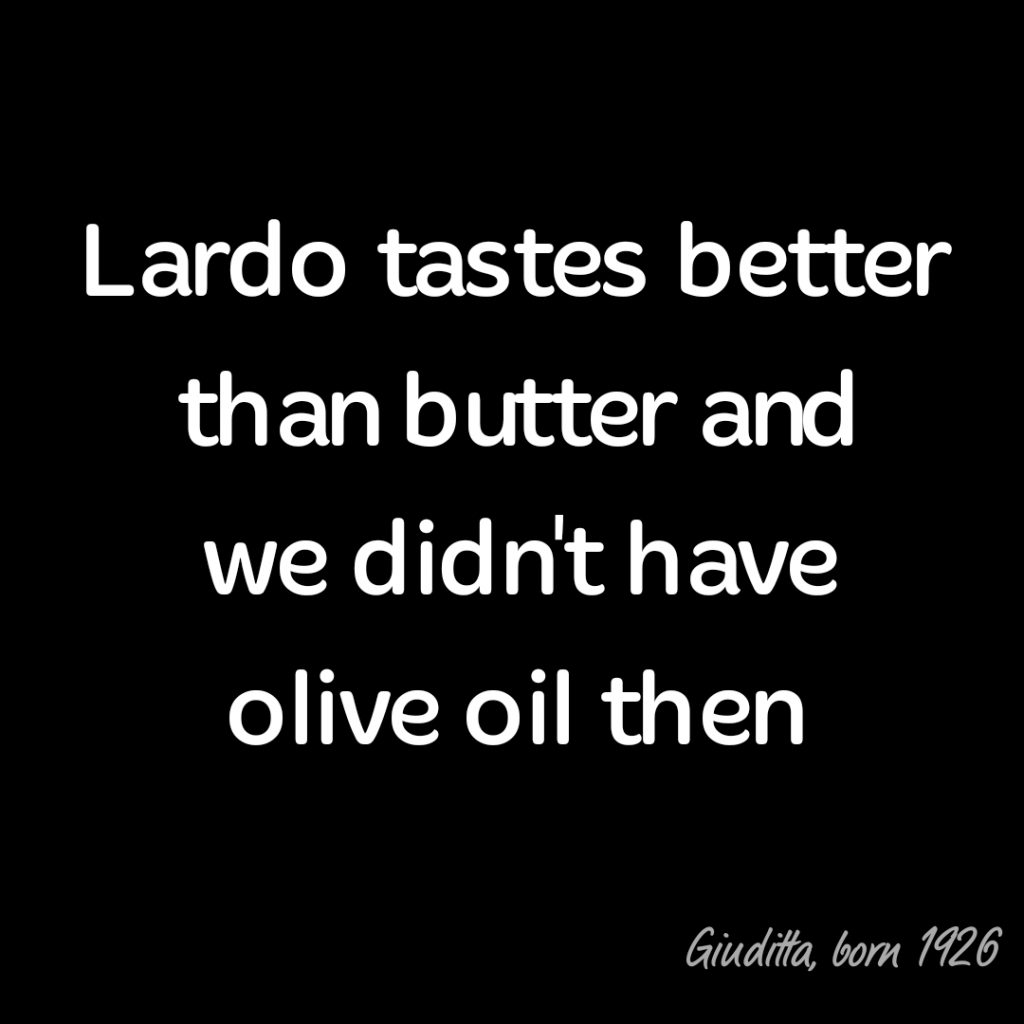
The information that these women revealed, through Karima, has completely changed my view of olive oil and its place in Italian history.
From Olive Oil Myths to Lard Truths
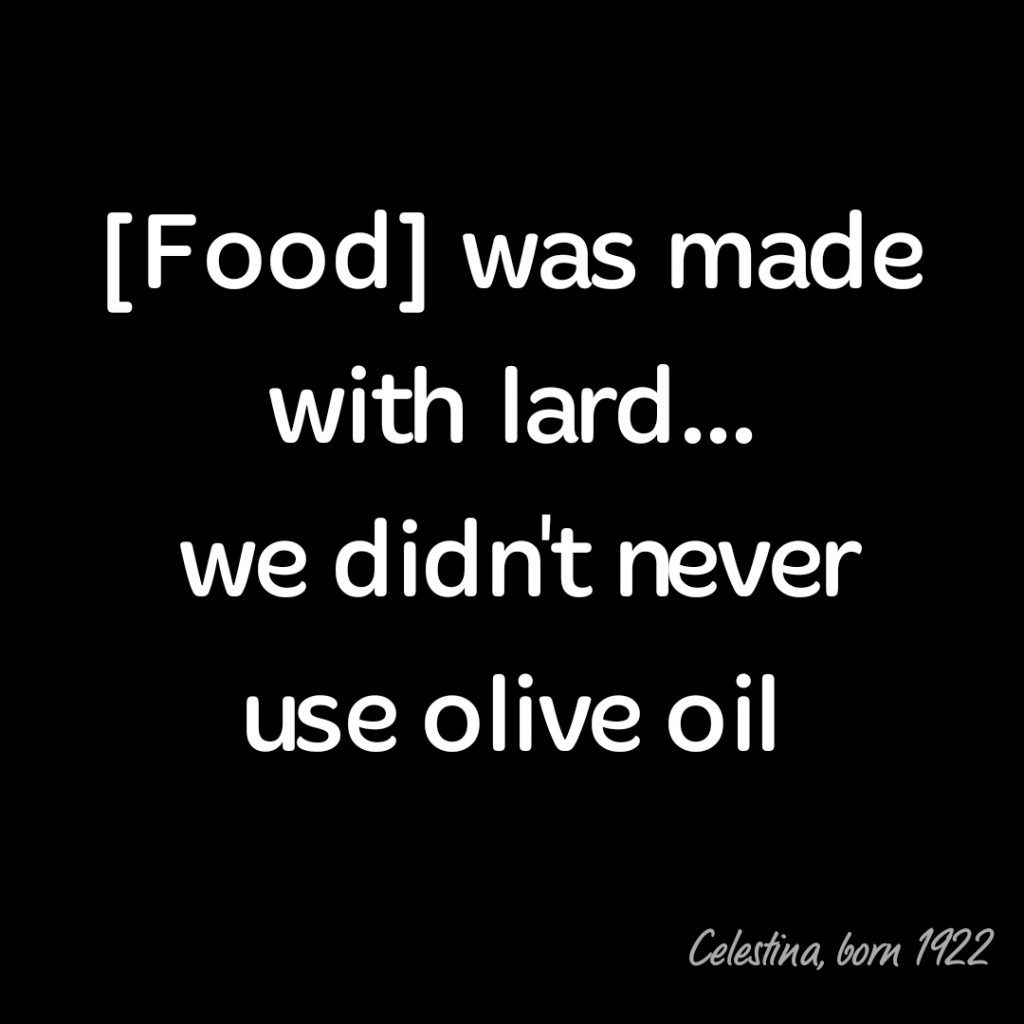
Again and again these women talk about how they used pig fat in the form of lard (and the cured version, lardo) everyday in their kitchens.
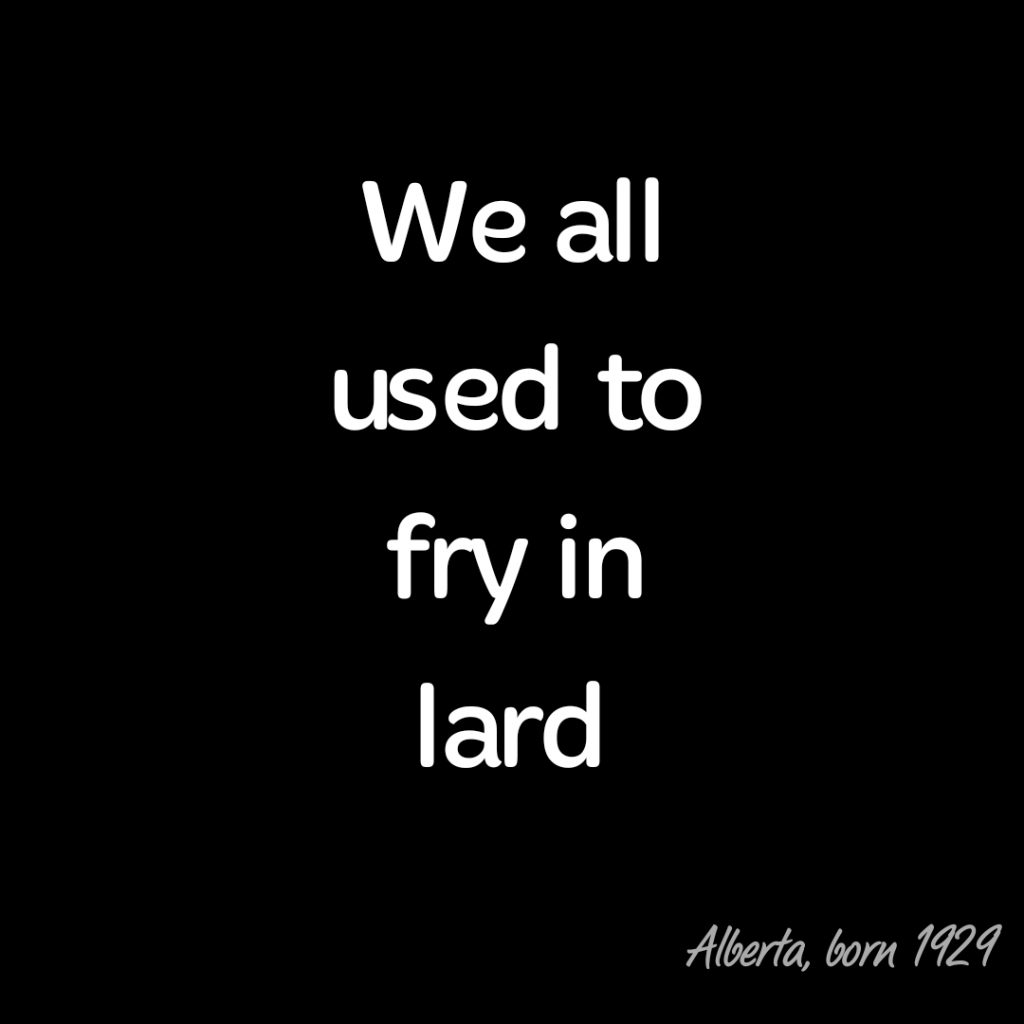
Women who hardly had enough food to survive, women who worked the land every day, dawn till dusk, women who were born into incredible wealth. Women from the Austrian and Swiss influenced north and women from the starkly different deep south. They all routinely used lard, not olive oil.

Pigs were a way to survive, their slaughter, come winter, providing meat yes, but most importantly providing fat. Fat to eat, fat to cook with, fat to preserve, fat to make soap.

As you can see from these quotes, all words from women Karima interviewed, Olive oil ranged from a local foodstuff used sparingly to something people even didn’t know about.
I’ve been rendering and using lard in my kitchen for almost a decade. I’ve done this not only because I love the flavour and how easy it is to cook with it, but also because it has always seemed the most environmentally sound and healthiest choice.
Despite doing this, I’d always had the ‘but the long-lived Italians have always used olive oil’ doubt in my mind. Reading the testimony of these women has given credence and history to my instinctive choices.
And it’s also reinforced in me the need for us all to question, at a deep level, what is ‘sold’ to us through media channels around our food. The profound social, political and cultural implications of the misinformation around the Italian use of olive oil is, I guess, just a microcosm of what is happening in the rest of our food world.
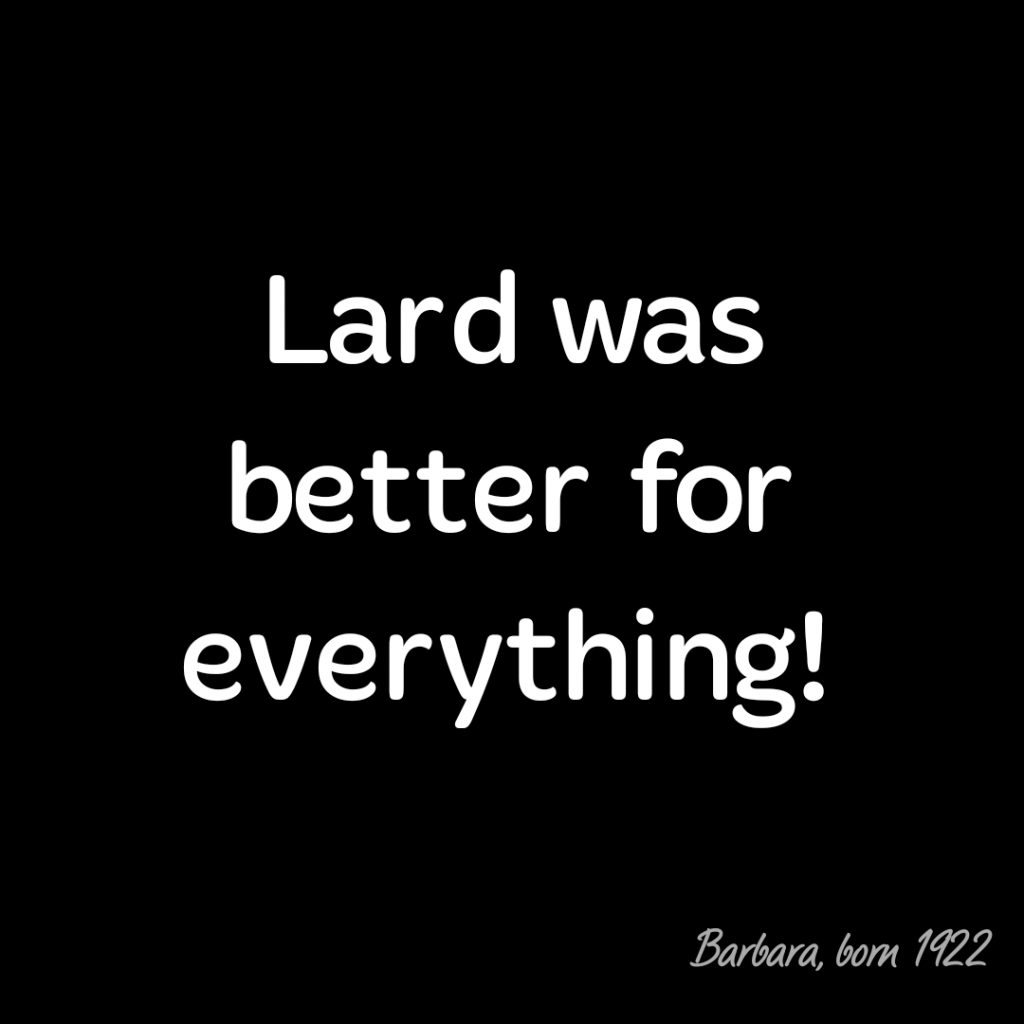
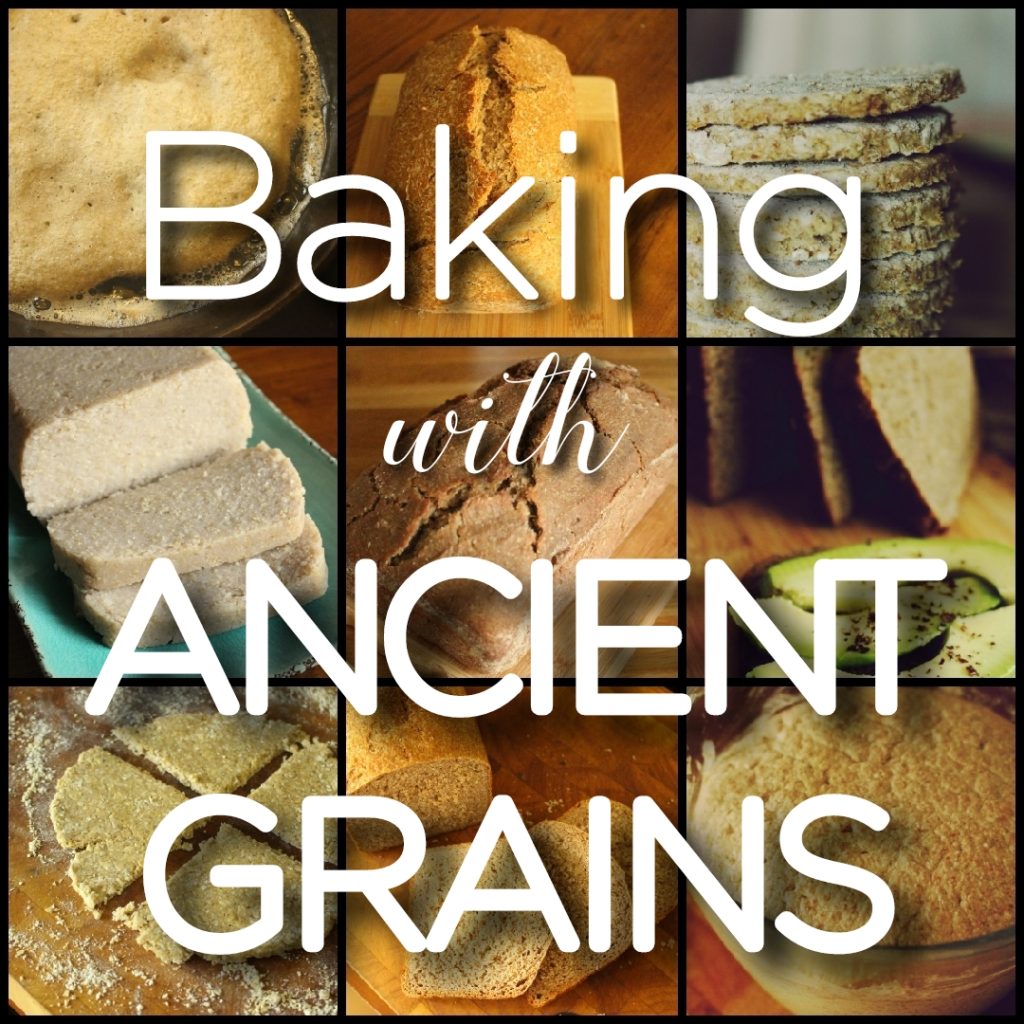
Bring ancient grain baking into your kitchen!
Download my free 30-page guide with five healthy and tasty 100% ancient grains recipes.
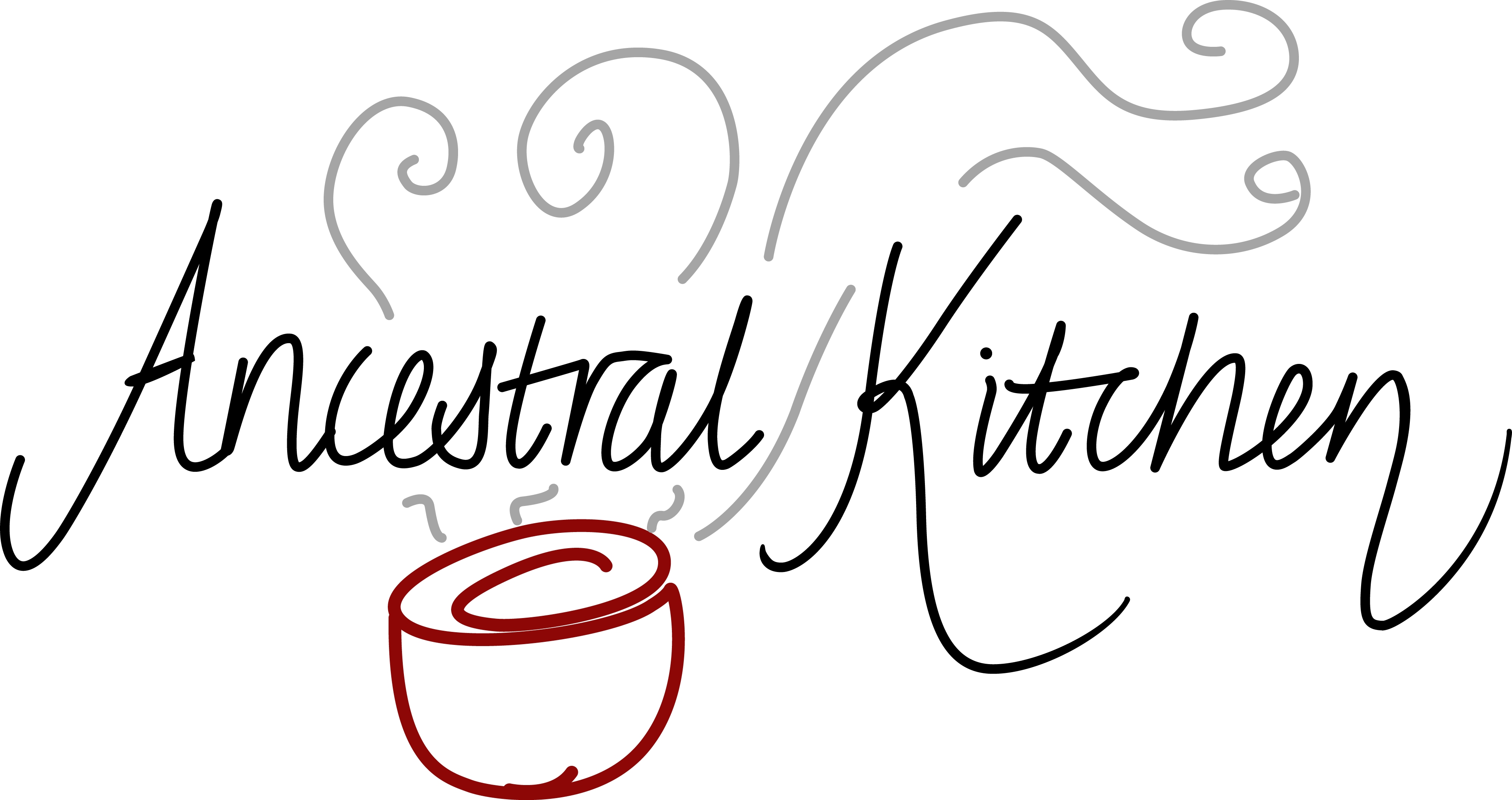
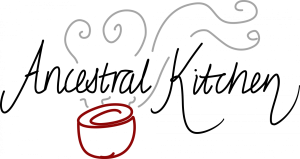
THis SUCH great news! I’m married to a wonderful guy with Sicilian ancestry and he says it’s olive oil so that what we’ve used for 36 years. BUT I’ve always had a hunch that they used lard and so I’ve rendered my own from organic hogs and I can’t wait to get that great flavor going again. He had heart issues so of course they told him to continue with the olive oil.
Also I ordered your book; arrived Friday. So glad I came upon your podcast!
Hi Diana! Thanks for this lovely comment. Go great that you’ve rendered your own lard from a good source. Enjoy using it! Glad you are enjoying the podcast too 🙂
My great grandparents came from Sicily. And they never used olive oil. It was always lardo. Both my grandparents on my mother’s and father’s side died at 100+. This notion of olive oil being better is a lie. If that would be the case why do people that have used all their lives heart problems. Don’t believe the lies.
Hi Ike! How wonderful to have such long-lived ancestors. Yes, Sicily was a lard haven 🙂
How wonderful it is to unlearn old tales (for profit) and know that lard was Always a truth. Some people are awake, some are waking up, and others will never know the truths. Thank you for sharing old fashioned truths. I appreciate your effort to teach us our human , God given DNA food requirements…and yes, I bought expensive Olive 🫒 Oil, and my mother, who lives in South Africa, goes to the Farmers to refill her Olive Oil fresh from the press. I prefer eating, and cooking with Lard. Do you have a link for proper rendering of pigs fat. Also, is it okay to reuse that bacon grease?
It’s lovely to read your words, Elke!
I haven’t done a blog post on rendering lard yet, but I use the crock pot method and love it – look it up on You Tube and come back to me if you have any questions! I have a recipe here for a way to use the cracklings in bread: https://ancestralkitchen.com/2022/05/05/paneconciccioli/
I definitely reuse the grease from my bacon – as long as you’re not heating to to beyond a smoking point (you’ll see it smoke if you have) it’s fine.
Enjoy it all!
Thank you for sharing! I am sorry to say I
am not surprised. Insulin resistance is the major underlying cause of most chronic diseases and these nut and seed oils (vs. tallow, lard, butter, etc.), including olive and avocado because most are cut with cheaper oils, and contribute to the problem. I just stumbled upon your site and really appreciate your work 😉
Glad you have you here Carole 🙂
I too have returned to lard – from pigs raised on a local organic farm – pastured. No soy for these guys. I am interested in canning it for long term storage. Currently, I freeze it. However, I cannot find much information online. You also mentioned “cured lard”, lardo. How do you preserve lard from one butchering to the next? Or, do you know research resources?
Hi Evelyn,
You have a great source for pig fat! I freeze my rendered lard. It works well. I have never canned it. I searched for resources but couldn’t find much. This post mentions it: https://www.preparednesspro.com/rendering-and-preserving-lard
Other than that, maybe a homesteading group on facebook might be able to help you? Hope this helps.
Alison
We used pig lard in the 1960s on or farm. but it wasn’t “organic.” Organic is more of a 1990s things. . . lard was cheaper and more available until about the 1970s when I was growing up in Central Wisconsin. If we did use olive oil it was for canning hot Italian peppers.
Lovely to hear, Robert. I agree about organic. We’ve only needed the term more recently.
Hello! I’m new here and I appreciate and agree with most everything I’m reading. I’ve always cooked with lard until recently. Chronic, severe leg pain made me question everything. in addition to the pain, I would have an unsettling icy Hot feeling in my legs through the night. I finally stopped eating so much lard replacing it with reason olive oil instead. In just 2 days the icy hot feeling was completely gone and the leg pain is far less frequent. Do you not believe there’s a correlation? Also, my husband made the switch at the same time and it lowered his cholesterol and lipids so much he said he felt 20 years younger. he ended up taking up skiing and is far more active than he’s been in a while. The activity came after the positive affect from the dietary change and it’s effect on his energy and lab work. He just keeps getting younger it seems. I still believe lard is good in healthier people but, once you start having heart issues and or peripheral artery disease ( like me), probably not so much.
Hi Jill, I’m glad to hear that you and your husband are feeling better. This article highlights the myth that olive oil has always been used in Italy, showing instead that lard was often the only fat available on a daily basis. My recent podcast episode on pork (here: https://ancestralkitchenpodcast.com/2026/01/123-celebrating-real-pork-history-sourcing-a-mouth-watering-recipe-book/) explains that, historically, pigs were very different to the pigs that we are eating now – so I guess that the fat that comes from them is also different. Everyone’s make up is individual and if lard doesn’t work for you, then I recommend choosing what does. Alison
First of all, many many people the world over never use products from pigs, including my family and all our ancestors.
Sicilia is a small part of Italy. People from central and northern Italy have grown olives and used olive oil for centuries.
I can’t imagine why you are so against olive oil when it is pure and cold pressed.
You need to ask yourself, WHOSE ancestral diet.
I am not against olive oil, I use it every day in my kitchen.
The women quoted in Karima’s book who lived on lard – and rarely if ever consumed olive oil – are from all over Italy.
Yes there are some particular areas of the country where olives have been cultivated for a long time but what I am against is the world-wide accepted ‘truth’ that all Italians have been living on olive oil since time began. They haven’t.
Olive oil has been a major economic force throughout the Mediterranean for millennia. It stores and travels well. Pork lard has been a staple wherever eating pig is not restricted by religion. Pigs are relatively easy and cheap to keep (often semi-feral) and they can be slaughtered whenever necessary. I am half Sicilian. My ancestors used everything including sheep and chicken fat, and different products were more suitable for different dishes and different types of cooking and during different seasons.
wait, so why is Italy covered with olive trees? and why is there such a strong tradition in Italy of harvesting olives and pressing it to olive oil?
Because olive oil is such a huge business. $14 bill a year. Olive trees can bear fruit within 2 years and grow to full height in 15. It’s been 75 years since the 1950s evacuation from country to city and the turn to olive oil for ‘health’.
If you talk to elders, like Karima did in Chewing the Fat, you find that unless they lived in an olive region, they used pig fat.
Also the word “larder” comes from where lard food preserved in lard was stored
Ahh, yes, of course. Love it!
My grandparents were both born in Italy in the late 1800’s and early 1900’s and they always used olive oil. I never saw them use lard. They were both from olive regions so maybe that’s why, as you have suggested. Italy has been producing olive oil since the 7th century BC but maybe it wasn’t accessible for everyone.
Yes, it was accessible to people local to the trees but not nearly for all. Interestingly, the Romans, as well as home-producing, imported a lot of their olive oil from Spain.